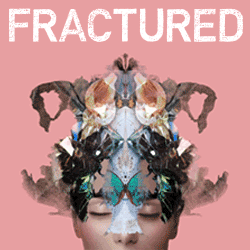Junior Committee
Sunday, October 22, 2017
"Are You *Actually* a Professional Dancer?" Addressing Common Questions and Misconceptions
Sherylynn Sealy discusses some of the questions she encounters from people outside the dance world attempting to determine who is "really" a professional dancer--and why these questions reflect a limited and misguided view of professional dance.
“Have you performed at Lincoln Center?”
“How many years did you do pointe work? Are your feet destroyed?”
“How long have you been dancing?”
“Oh, you dance at church? Cool!" (But definitely not professional.)
Okay--pump the breaks! It’s time to debunk some common misconceptions of what it means to be a professional dancer.
"Have you performed at Lincoln Center?"
Lincoln Center is one of the most widely known artistic performance venues, and if you’ve made it there, kudos to you! However, there are so many other performance venues that serve as a mark of professionalism: Carnegie Hall, Apollo Theater, Boston Symphony Hall, The Joyce Theater, The Wang Theatre, Brooklyn Academy of Music, The Bushnell Performing Arts Center, The Shubert Theatre, and so many more across the United States and the world.
Furthermore, as we journey through an age of increasing access, there are lots of opportunities to participate in projects with final performances at Lincoln Center and the like. This is not to discredit those who are world-renowned and have been featured performers on the David H. Koch Theater stage, but rather to offer an alternative way of thinking about professional dancers. A curated list of venues is not enough to filter out the professional dancer from the rest.
"How many years did you do pointe work? Are your feet destroyed?"
Alright, this one is for the girls. The lovely ladies who were on pointe for three years and--in the middle of a sharp Achilles pain--heard the gentle call of Martha Graham or Fred Astaire. Or the girls who came out of the womb with an incredible ability to execute a well-controlled Etighi or a hard-hitting Kuduro. To those with the beautiful forced arch of a Bharatanatyam piece along with the immense height and stealth of a precise hop jig, this is for you.
It is simply wrong to assume that a person cannot be considered a professional dancer based on how many years they did or did not do pointe work. A pointe shoe is a not a proxy for professionalism, nor is ballet required to be a professional in any genre of dance.
Yes, ballet is a beautiful art form (one that I used to teach and still practice here and there). And it absolutely does help a lot with learning about body alignment. But it is only one of the many fantastic forms that comprise the dance community. The dance world is a conglomeration of art forms and cultures, and thus, the way we value and acknowledge dance should reflect that.
(I will say however: shout out to the ballerinas and danseurs who stuck through it. It is not easy, and I have a lot of respect for you! No one will ever truly understand how strong your ankles, psoas, core and everything else are.)
"How long have you been dancing?"
Everyone gets asked this question. And while the length of time anyone does anything is a testament to their dedication, it also isn’t everything.
Think of it this way: I am sure we know that one person who has been singing their entire life. They haven’t gotten any better, but they keep trying. We love them, but they just aren’t there yet.
Or that other person who has been dancing from the age of two, but has also been on every swimming, fencing, softball, basketball, football, cross country, gymnastics, and really any team one can imagine. So while they can tell you the rules and show you the basics of each activity, they never truly mastered one.
And of course, we know that one person who started dancing at 14, only did that one thing every day, and ended up on “So You Think You Can Dance”.
See what I’m getting at? Number of years dancing (or doing anything really) are important, and when done consistently, translate into mastery and excellence. But if you aren’t working hard on the skill for all of those years, then the amount of timw does not hold as much value. Consider this when asking about years of practice to determine whether or not someone is a professional.
“Oh, you dance at church? Cool!" (But definitely not professional.)
This particular question is near and dear to my soul. Church dancing (known as worship dancing or liturgical dancing) dates back to ancient Biblical days, and the style has been passed on. Today, many churchgoers have rigorous training in many genres of dance, and teach at church in order to provide training to other churchgoers who may want to learn.
Additionally, we must revisit the argument that there is a distinct form of expertise and technical proficiency that comes with every genre of dance. Thus, if someone dances at church, the purpose is not necessarily to execute the deepest contraction or to engage an audience with a clean double time step, but rather to use the body to create an authentic worship experience for people in the house of worship.
I personally have had experiences where my team of supporters watched me perform a technical lyrical piece at a church and favored a liturgical piece over mine. It confused me years ago when it happened, but now that I have a better understanding of what dance truly is, it makes sense. No genre is inherently better or worse than another, regardless of the technical background involved. Furthermore, you cannot assume that because someone dances in church, they are not a professional.
So what is a professional? According to the Webster’s Dictionary definition, a professional is determined by pay: “participating for gain or livelihood in an activity or field of endeavor often engaged in by amateurs”.
According to me? It's hard to say, but I would go with someone who has mastered a genre of dance that is consistent and intentional in its movements, and has the ability to connect people and connect with people. This is incredibly broad and can be interpreted in so many different ways, but that’s what dance is, right?
Note: This is not written to discredit any genre of dance or art form, but rather to propose an alternative way of thinking about what it means to be a professional in the dance world. I celebrate all art forms and I am a New Yorker for ALL genres of dance!



